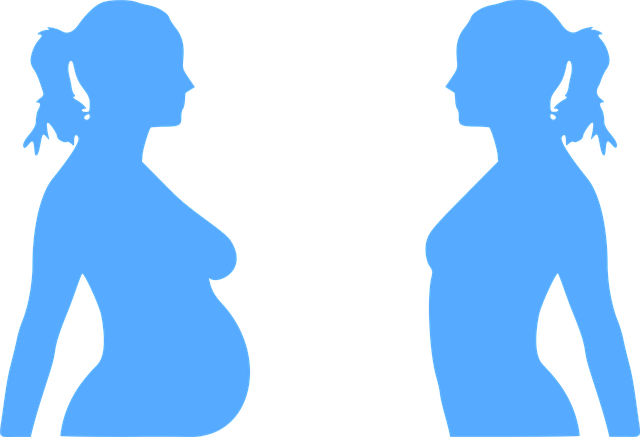In Vitro Fertilization (IVF) with donor eggs is a powerful solution for women facing fertility challenges due to ovarian conditions such as endometriosis or cysts. Using healthy donor eggs from younger individuals significantly enhances IVF success rates, especially after ovarian surgery that may reduce egg quality and quantity. This approach offers a fresh genetic start, bypassing scar tissue and damaged ovaries, often surpassing outcomes with the recipient's own eggs. Meticulous pre- and post-care is crucial for optimal results, including hormonal assessments, donor selection, and ongoing support to manage symptoms and side effects, ultimately improving IVF success rates for women with ovarian conditions.
“Explore the promising path to motherhood with our in-depth look at IVF using donor eggs post-ovarian surgery. Understanding the intricate relationship between IVF, donor eggs, and ovarian health is pivotal for success rates. This guide delves into the impact of ovarian surgery on fertility and reveals how donor eggs can enhance chances of conception. From pre-IVF preparation to post-treatment care, discover the strategies to optimize results for women navigating fertility challenges due to ovarian conditions.”
Understanding IVF and Donor Eggs: A Comprehensive Guide
In Vitro Fertilization (IVF) is a highly advanced and effective fertility treatment, especially for women facing challenges due to ovarian conditions. When traditional methods fail, IVF offers a promising solution by combining a woman’s eggs with sperm in a lab setting to create embryos. However, for individuals with ovary-related issues, the use of donor eggs becomes a crucial component. Donor eggs for women with ovarian conditions can significantly enhance IVF success rates, as it overcomes the barrier of reduced egg quality or quantity.
This comprehensive guide aims to shed light on how donor eggs play a pivotal role in IVF treatments. By utilizing eggs from a young, healthy donor, the chances of successful fertilization and pregnancy increase substantially. It is essential to understand that while ovarian surgery can be a life-changing step, incorporating donor eggs into the IVF process can further optimize outcomes. This approach ensures that the best quality genetic material is available for conception, ultimately fostering better prospects for a successful pregnancy.
Ovarian Surgery and Its Impact on Fertility
Ovarian surgery, a procedure often undertaken to address conditions like endometriosis or cysts, can significantly impact fertility. Depending on the extent and nature of the surgery, it may lead to reduced ovarian reserve and diminished egg quality, making conception challenging for women who choose to conceive naturally. This is particularly true for those with pre-existing fertility issues. Fortunately, donor eggs offer a viable solution for such women, enabling them to pursue successful pregnancies after ovarian surgery.
Using donor eggs allows women with ovarian conditions to bypass the potential hurdles posed by surgical intervention. With healthy donor eggs, the focus shifts from the ovaries to other critical factors in IVF success, such as embryo quality and implantation. This approach has shown promising results, providing hope for women who may have faced limited options following ovarian surgery.
Success Rates: Uncovering the Potential with Donor Eggs
Success rates with donor eggs after ovarian surgery offer a glimmer of hope for women facing fertility challenges due to ovarian conditions. When traditional IVF methods may be less effective, utilizing donor eggs can significantly enhance the chances of successful conception and pregnancy. Research indicates that using donor eggs in these cases can lead to remarkable outcomes, often exceeding success rates achieved with the recipient’s own eggs.
This approach is particularly beneficial for women who have undergone ovarian surgery due to conditions like endometriosis or cysts. Donor eggs provide a fresh genetic start, circumventing potential issues associated with scar tissue and damaged ovaries. As a result, IVF with donor eggs becomes a powerful tool, enabling many women to fulfill their desire for motherhood.
Navigating the Journey: Pre- and Post-IVF Care for Optimized Results
Navigating the journey of IVF with donor eggs after ovarian surgery requires meticulous pre- and post-care to optimize results. For women facing ovarian conditions, this process is a delicate balance between hope and medical precision. Pre-IVF care involves comprehensive assessments to understand the patient’s health status, including hormonal profiles, ovarian reserve tests, and detailed discussions about donor egg selection criteria. This preparation ensures that the chosen donor eggs are of high quality, increasing the chances of successful fertilization.
Post-IVF, ongoing support is crucial. Patients need guidance on monitoring for pregnancy symptoms, managing potential side effects, and understanding when to seek medical attention. Regular follow-ups with healthcare professionals allow for adjustments in care plans based on individual progress. This holistic approach to pre- and post-IVF care not only enhances the success rates of IVF using donor eggs but also provides emotional support, ensuring patients feel valued and empowered throughout their treatment journey.
For women facing fertility challenges due to ovarian conditions, utilizing donor eggs within IVF treatments offers a promising path to achieving pregnancy. As discussed, success rates are encouraging, especially when tailored care and post-IVF support are provided. Embracing donor eggs as an option allows individuals to navigate their journey with hope, empowering them to build families despite the unique obstacles they face. This comprehensive guide highlights the importance of informed decision-making and access to specialized care for optimal outcomes when considering IVF with donor eggs after ovarian surgery.
